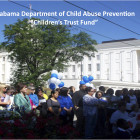
Starbucks Seeks to Highlight Community Youth Leaders
|
The Starbucks Foundation offers grants ranging from $10,000 to $30,000 each year for programs or services focused on youth between the age of 6 and 24. In the U.S., only 501(c)(3) non-profit are eligible. Proposals should focus on or include at least one of the following areas:
Youth active in the leadership of the organization. Telling stories of emerging young leaders. Building bridges between and among different youth communities.








